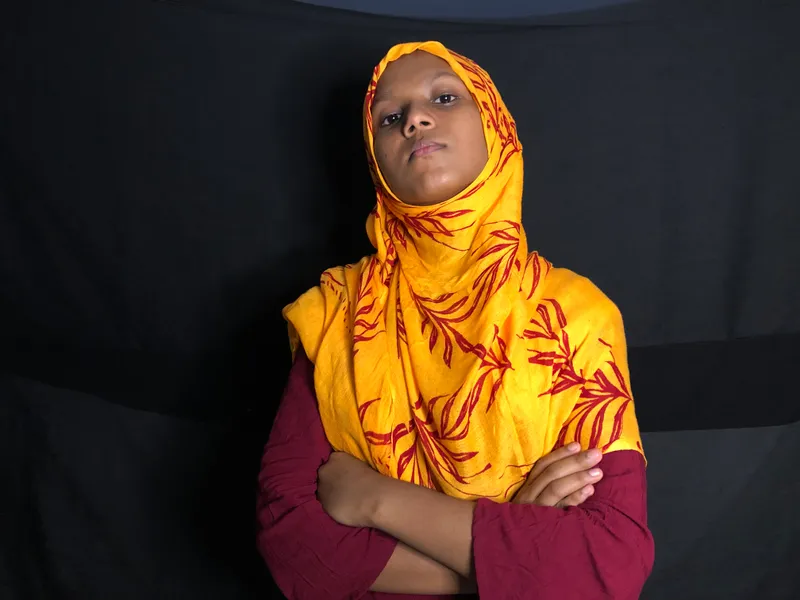Dharavi teens release their first hip-hop EP under Zoya Akhtar’s label
Saniya M, 18, and Ayush aka Kavikaar, 19, rap about their angst, joys and everyday life in their first EP, ‘Baccha Kisko Bol Raha Hai’.
Amid the disorder and poverty in the dense settlement of Mumbai’s Dharavi slum, home to close to a million people, young artists are taking to rap and hip-hop to express themselves.
Ten years ago, the late Samir Bangara and Dolly Rateshwar, with the help of two hip-hop crews from Mumbai, set up a community centre inside a shanty for kids to drop in after school and bounce their musical talent off each other. Today, The Dharavi Dream Project (TDDP) has grown into a full-fledged movement of young poets, songwriters and artists, driven by the fire to tell their stories their way.
Out of the 150+ kids and young adults who have become the voice of this movement, two—Saniya M, 18, and Ayush aka Kavikaar, 19—have emerged as the first duo to release an EP (a small collection of music). It has been produced by Tiger Baby Records, a joint venture by music composer Ankur Tewari and filmmakers Zoya Akhtar and Reema Kagti.

Saniya MQ started training under MC Heam in 2020.
Produced by Hashbass and with Tewari as creative director, ‘Baccha Kisko Bol Raha Hai’ addresses themes of imagination, creativity, friendship, and the joy of learning.
The EP is part of a series of four children’s music EPs released in collaboration with Platoon Music, an Apple-owned artist services company, and A&R, a music distribution company.
Saniya derives her inspiration from a treasure of notebooks with her poetry from childhood to now. She has stored it away discreetly to support her creative process. She also took hip-hop lessons under MC Heam (one of the mentors at TDDP) without telling her mother as it was a personal experiment.
“I’d made a deal with her; I would score well in school if she let me use her phone for an hour thrice a week. I used it to record, edit, shoot my videos and upload them. She didn’t know what I was doing until now when the EP was released,” says Saniya, a first-year student of multimedia and mass communication.
“I wanted to see for myself where this experiment led me,” she says.
Kavikaar looked up to his elder brother, a rapper himself who influenced him to write his own songs when he was 13. He grew up watching his brother and popular artists such as DIVINE, Naezy and Emiway Bantai at work. Soon enough, Kavikaar was writing his own verses about life, friends and his environment, which he rapped to his friends in school during lunchtime.

At 13, Kavikaar was writing his own verses about life, friends and his environment.
“They loved it and I wrote more. I was soon attending jam sessions at TTDP and was eventually inducted into the scene,” he says.
For Tiger Baby Records, which has been exploring a plethora of sounds from India and giving them
a global platform, Saniya and Kavikaar’s songs offered a new and refreshing lens into the Indian hip-hop scene.
“They’re both amazing talents, and it was about time they were backed by a label,” says Tewari. “They have written stories about their life, what they go through and how they feel. We’re excited to see how kids react to these stories and their expressions,” he adds.
Saniya says she has always found songs to be a medium that allows her to be unhinged in expressing her deepest struggles, joys and observations. “When I talk, I stammer a lot. In my songs, my voice is loud and my message is crystal clear,” she says. “I write about women and why they are perceived differently in society; and about our community and the power for change we have within us.”
“I wanted to make music to talk about the things I was going through; life in the slum, poverty, power, our place in the world. For me, hip-hop became my way out of helplessness and a means to channel my pain,” says Kavikaar.
Baccha Kisko Bol Raha Hai became available on YouTube and other streaming platforms on February 2.
Edited by Kanishk Singh







